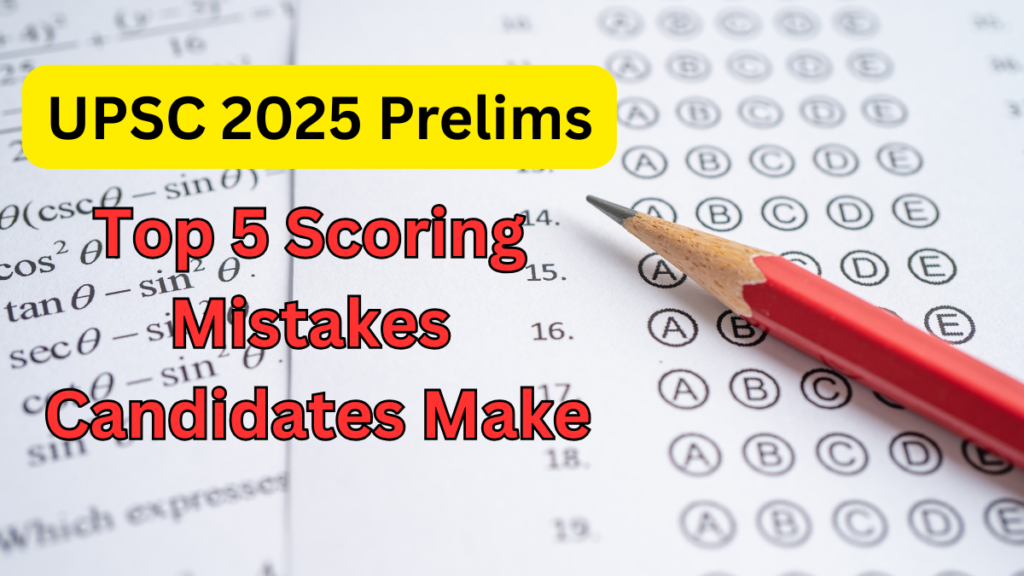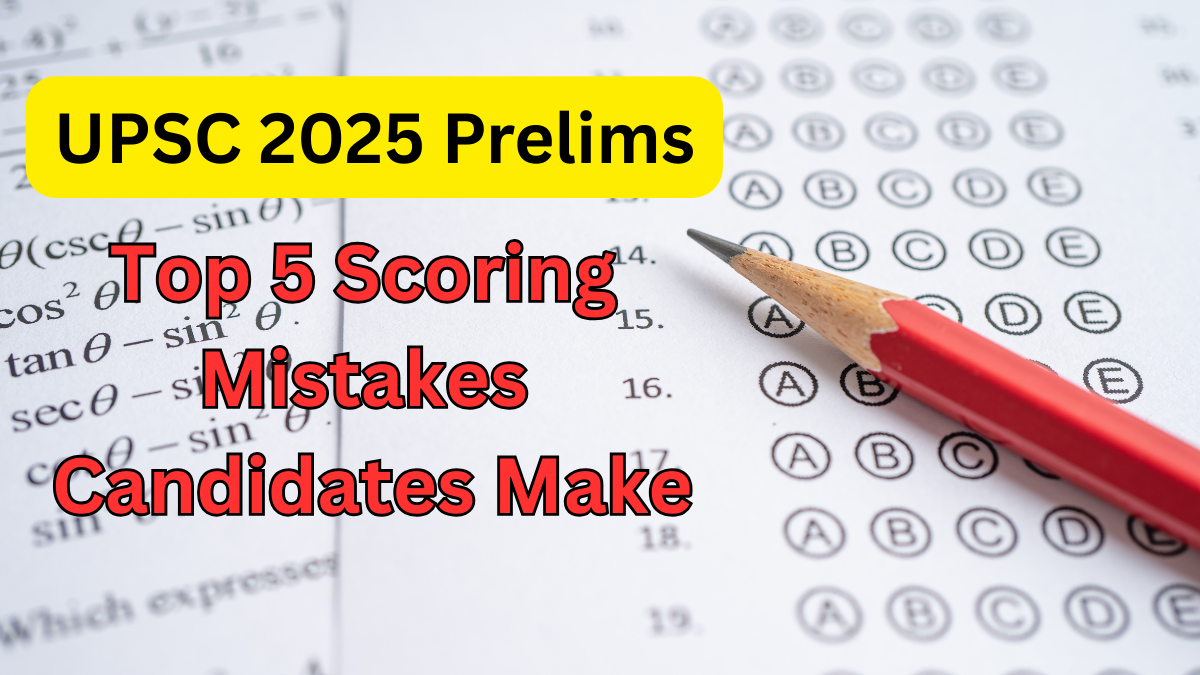Cracking the UPSC Prelims is a marathon, not a sprint. Despite months of preparation, many candidates fall short due to small yet impactful mistakes. If you’re preparing seriously, understanding these pitfalls can dramatically improve your outcome.
Let’s dive into the most common prelims mistakes and how to overcome them using smart IAS strategy tips.

1. Ignoring the Syllabus and Trends
Many aspirants study haphazardly, without referring closely to the UPSC syllabus or analyzing past year question papers. This leads to a scattered approach that lacks focus.
Why It Hurts:
-
Time is wasted on topics that rarely appear.
-
Important subjects get ignored.
-
Preparation becomes unstructured and ineffective.
IAS Strategy Tip:
| Action | Reason |
|---|---|
| Download and print the syllabus | Keep it visible while studying. |
| Analyze PYQs (Past Year Questions) | Spot recurring themes and question trends. |
| Create a topic checklist | Monitor your coverage effectively. |
2. Overdependence on One Source
One of the biggest UPSC 2025 prelims mistakes is relying entirely on a single book or coaching material. UPSC is known for testing conceptual clarity and diverse understanding.
Warning Signs:
-
Repeating memorized lines instead of understanding concepts.
-
Missing dynamic questions that need updated content.
How to Avoid UPSC Errors:
-
Refer to multiple standard sources for each subject.
-
Supplement static books with newspapers, Yojana, and monthly current affairs compilations.
3. Poor Time Management in the Exam
Time mismanagement during the actual exam can sabotage months of hard work. Candidates often spend too much time on the first few questions and struggle to finish the paper.
The Real Problem:
-
Getting stuck on difficult questions early.
-
Rushing through the last part of the paper.
-
Making avoidable mistakes under pressure.
IAS Strategy Tip:
| Time Block | What You Should Do |
|---|---|
| First 30 minutes | Solve easy and direct questions first. |
| Next 30 minutes | Tackle moderate-level questions. |
| Final 30 minutes | Revisit skipped or doubtful questions. |
4. Lack of Revision and Mock Practice
Even if you study the right content, failing to revise or practice under test conditions can ruin your chances. This is one of the most common prelims mistakes made by otherwise well-prepared aspirants.
Key Drawbacks:
-
Inability to recall information during the test.
-
Low confidence and stress.
-
Inconsistent accuracy under time pressure.
How to Avoid UPSC Errors:
-
Dedicate time weekly for revision.
-
Take at least 25–30 mock tests simulating real exam conditions.
-
Analyze mistakes after every mock test and adjust strategy accordingly.
5. Ignoring Mental and Physical Well-being
UPSC preparation is as much a mental battle as it is academic. Poor health, anxiety, and burnout can derail your focus, especially close to the exam.
What Happens:
-
Loss of motivation.
-
Reduced concentration and retention.
-
Panic on exam day.
IAS Strategy Tips:
-
Get adequate sleep every night (6–7 hours minimum).
-
Practice relaxation techniques like meditation or yoga.
-
Exercise or walk regularly to stay energized and alert.
Quick Recap: Top 5 UPSC 2025 Prelims Mistakes
| Mistake | Impact | Solution |
|---|---|---|
| Ignoring syllabus and PYQs | Scattered, ineffective study | Align with official syllabus and trends |
| Overdependence on one source | Limited perspective | Use multiple standard books and current affairs |
| Poor time management | Incomplete paper | Follow a time-block approach |
| No revision or mocks | Poor recall and low confidence | Regular revision + 25–30 mock tests |
| Neglecting well-being | Burnout and panic | Balance study with self-care |
FAQs:
1. How many mock tests should I take before UPSC Prelims 2025?
Aim for at least 25 to 30 high-quality mock tests. They help improve speed, accuracy, and boost confidence.
2. What is the most common UPSC 2025 prelims mistake to avoid?
Skipping revision and not analyzing past year questions. These are essential components of a winning strategy.
3. How to avoid UPSC errors during the actual exam?
Stay calm, don’t spend too much time on a single question, and stick to your time plan. Mark difficult questions for later review.
4. Are NCERTs alone enough for prelims preparation?
NCERTs are essential, especially for basics. However, standard books and updated current affairs are equally important to cover everything UPSC can ask.
Click here to learn more
